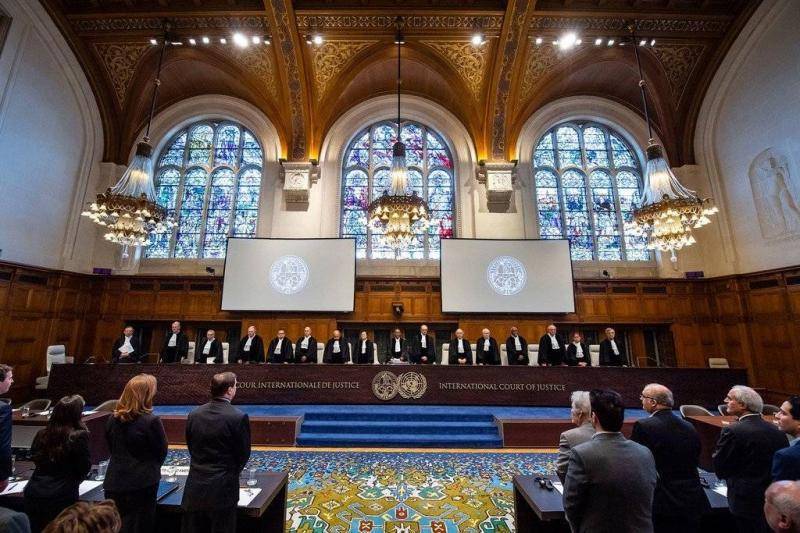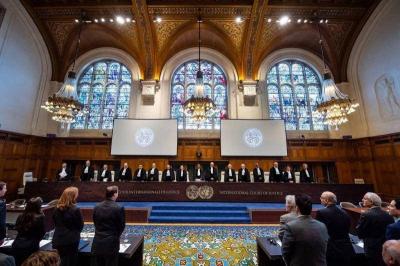The International Court of Justice began hearings today, Monday, on the Israeli occupation of Palestinian territories, ultimately issuing a non-binding advisory opinion on the matter. The court, the highest judicial body of the United Nations, commenced a week of hearings concerning the legal implications of the Israeli occupation, with judges set to hear statements from more than 50 countries.
Palestinian Foreign Minister Riyad al-Maliki spoke before the court, asserting that "Israel is committing genocide in Gaza and has been implementing apartheid policies against Palestinians for years." He also stated that "allowing this to continue is unacceptable. There is a moral and legal obligation to put an end to it swiftly." Al-Maliki added that the Israeli occupation should end unconditionally. He emphasized that Israel is defying a recent court order requiring it to take measures to prevent acts of genocide in Gaza.
In 2022, the United Nations General Assembly requested the court to issue an advisory opinion, which is non-binding, regarding the occupation. The hearings will continue until February 26, after which judges are expected to deliberate for several months before releasing an advisory opinion. Although Israel has previously ignored such opinions, these rulings could increase political pressure related to its ongoing war in Gaza, which health officials in the enclave say has resulted in the deaths of approximately 29,000 Palestinians.
Among the countries participating in the hearings are the United States, Israel's strongest ally, along with China, Russia, South Africa, and Egypt. Israel will not participate but has submitted written observations. The hearings are part of a Palestinian campaign urging international legal institutions to scrutinize Israel's actions, a call that has become more urgent since the Hamas attacks on October 7 that killed 1,200 people in Israel, and the subsequent Israeli military response.
This comes amid growing concerns of an Israeli ground assault on the city of Rafah in Gaza, which is the last refuge for over a million Palestinians fleeing Israeli attacks in the southern enclave. Israel seized the West Bank, Gaza, and East Jerusalem—historical Palestinian territories claimed for a future state—in the 1967 war. It withdrew from Gaza in 2005 but still controls the boundaries of the enclave, which Egypt also regulates.
This is the second time the United Nations General Assembly has asked the International Court of Justice to issue an advisory opinion concerning the occupied Palestinian land. In July 2004, the court concluded that Israel's construction of a separation wall in the West Bank violates international law and must be dismantled; however, it remains in place to this day.
The judges are now tasked with reviewing "the occupation, settlements, and annexation" carried out by Israel, including measures aimed at altering the demographic composition and character of the city of Jerusalem and adopting discriminatory legislation and measures. Since 1967, Israel has significantly expanded Jewish settlements in the West Bank, which Palestinians argue undermines the establishment of a viable Palestinian state. Israel also annexed East Jerusalem in a move not recognized by most countries.
The General Assembly also requested that the panel of 15 judges advise on how "these policies and practices affect the legal status of the occupation” and what the legal consequences of that situation are for all countries and the United Nations. The advisory opinion process is separate from the genocide case brought by South Africa against Israel due to its violations in Gaza of the 1948 Genocide Convention. In late January, the International Court of Justice ordered Israel to do everything possible to prevent acts of genocide in Gaza in that case.
While the outcome of the advisory opinion will not be legally binding, it is expected to carry "significant legal weight and moral authority," according to the International Court of Justice.




